Gimly’s Decentralized Identity Framework Is Built for Portability and Security
Gimly built a decentralized identify framework on EOSIO that offers users portability, security, and ease.
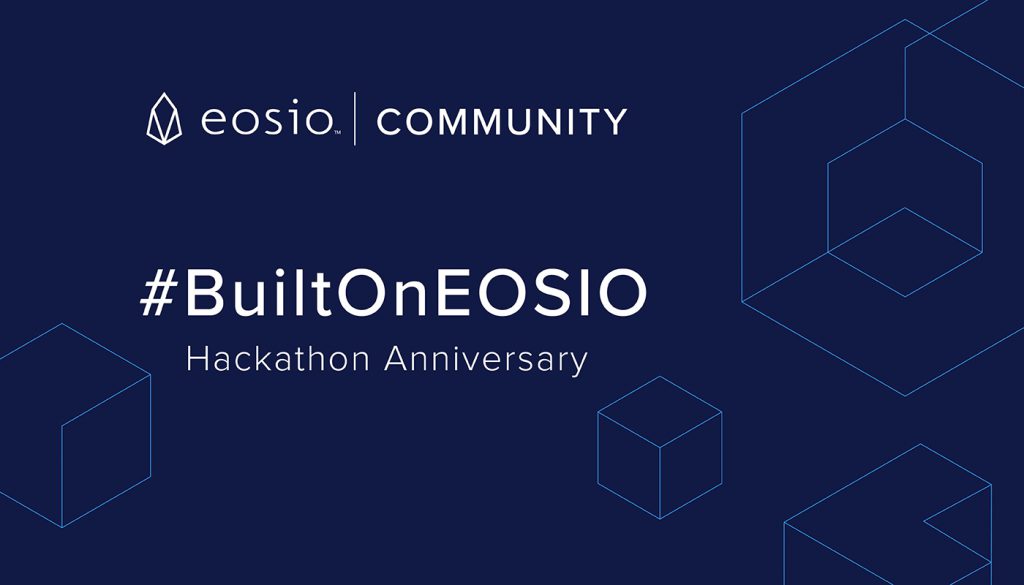
It’s been just over a year since the EOS Global Hackathon series concluded, so we’re taking a moment to recap what went down, but to also look forward. We’re checking in with some of the past winners and competitors on how their projects #BuiltOnEOSIO are progressing, where they’re at, and what they’re doing next.
For those of you new to the EOSIO ecosystem, in 2018 Block.one hosted the EOS Global Hackathon series, an event that brought people together from all over the world – 1,724 to be exact. All with the common goal of designing blockchain powered applications geared towards positive change that ultimately solve topical problems.
We began in Hong Kong, and worked our way through Sydney to London. We hosted the Africa Virtual event, headed to San Francisco, and brought everyone together with a grand finale in Cape Town. With judging panels well versed in what makes a great project, product or pitch, and mentors available at all hours to bring ideas to fruition, there was no shortage of collaboration or inspiration. Inspiration that ultimately saw 280 projects built on Block.one’s open source software, EOSIO.
Since then we’ve also launched a new home for EOSIO hackathons – hackathon.eos.io – along with resources and information for anyone around the world to host, partner or attend an EOSIO powered hackathon. With time, we hope to foster community driven EOSIO hackathons that bring together like minded individuals, and highlight the passion, creativity and skill of a collective that made and continues to make a mass contribution to the evolution of EOSIO.
For more on hackathon.eos.io, click here, and for updates on the finalists we’re checking in with one year later, read on.
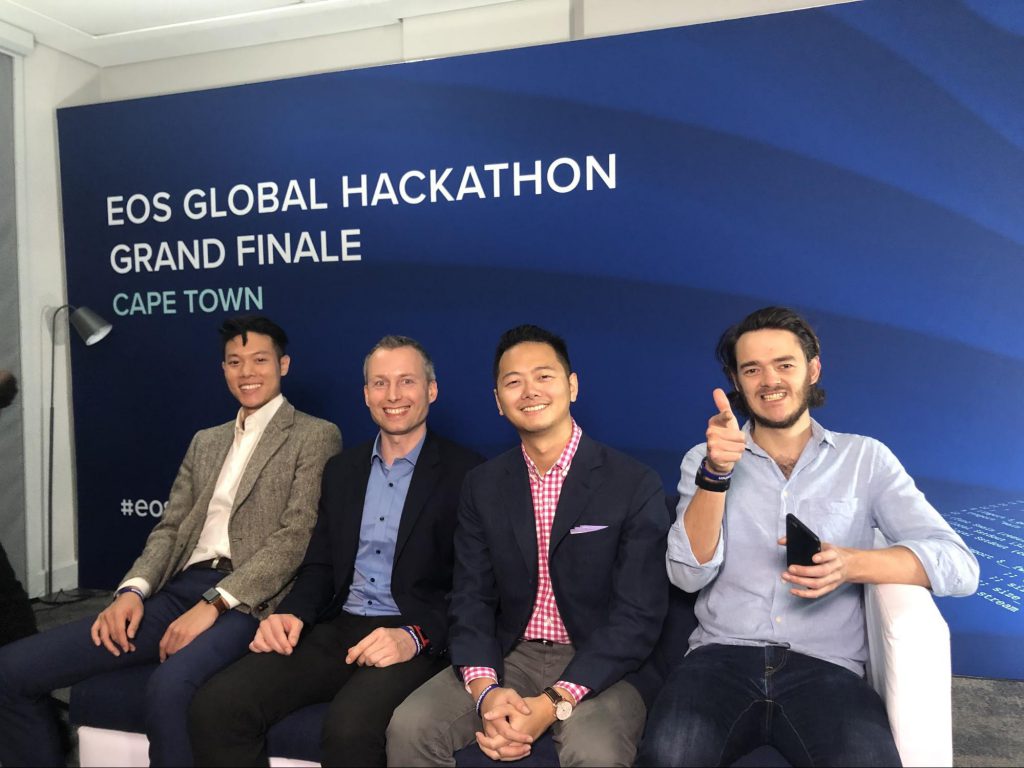
Albert Chen, Co-Founder and CEO of GeneOS
GeneOS, a blockchain-enabled data ownership, marketplace and secure computing platform for genomic big data, took home US$500,000 in Cape Town courtesy of EOS VC. Since the Grand Finale, this global foursome of Benjamin Tse, Jens Elstner, Albert Chen and Jay Bowles – have been advancing their project towards beta in Q1 2020, with a pilot program to come soon after.
It’s been a slow but steady progression, one that Co-Founder and CEO Albert and the team expected from the beginning, “We had to keep iterating our product as we got deeper into the genomic and medical space.”
Dubbed by some as a “boy band of blockchain”, their project (which also was awarded Best Social Impact Prize in London) stemmed from the need for more people to privately sequence their genomes so humanity – particularly the scientific community – can better understand the information contained in DNA with a view to both disease prevention and cure.
“Our main focus has been customer development – testing our initial assumptions with genetic researchers, designing and validating our prototype based on their needs and understanding the AI world.”
Admitting their vision is grand, it is one the team are breaking down into smaller, more achievable phases, and actively working to accomplish each step.
Read more on GeneOS’ original Grand Finale win here and the #BuiltOnEOSIO feature that sheds more on their project here.
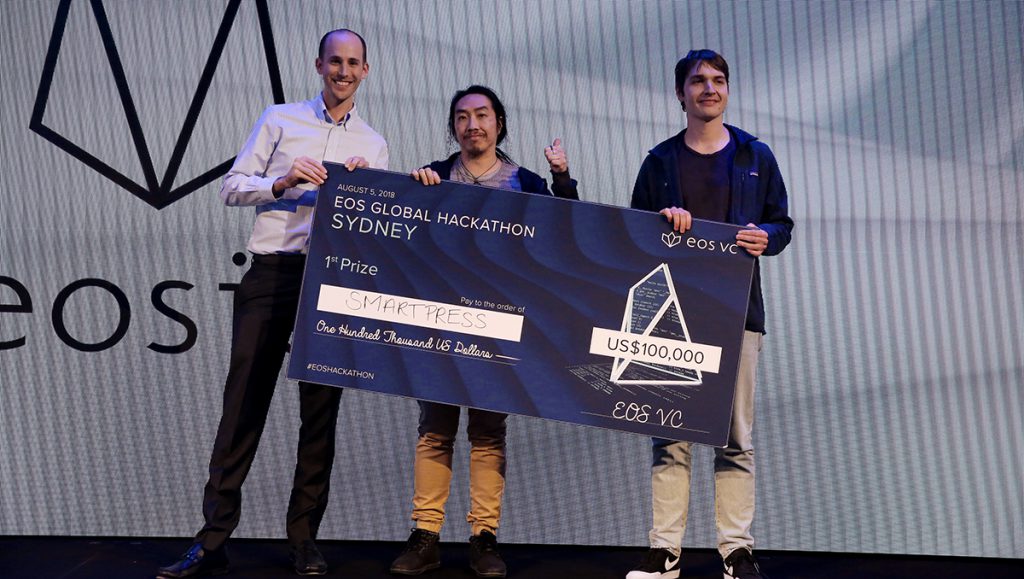
Lachlan Greenbank, CEO & Founder of Smartpress
Since winning the Sydney Hackathon, Smartpress hasn’t just continued developing their web app that allows anyone to seamlessly integrate apps with EOSIO smart contracts; they’ve been meeting significant and impressive milestones as they do.
In September, Version 1 of their service platform launched, generating just under US$50,000 of revenue.
This progress, founder Lachlan Greenbank says, has come after a year of technical challenges, which they were well positioned to meet thanks to the mentorship received in Sydney.
“It (the mentorship) provided us with a condensed incubator program that gave Smartpress the initial push, and we’ve been building on their advice ever since.”
“We’ve also been finding our own identity and strategies to position ourselves as a competitive and innovatively placed alternative, in this ever changing blockchain landscape.”
Their market of smart contract powered apps is one they hope to grow in 2020 through a revised UX focus.
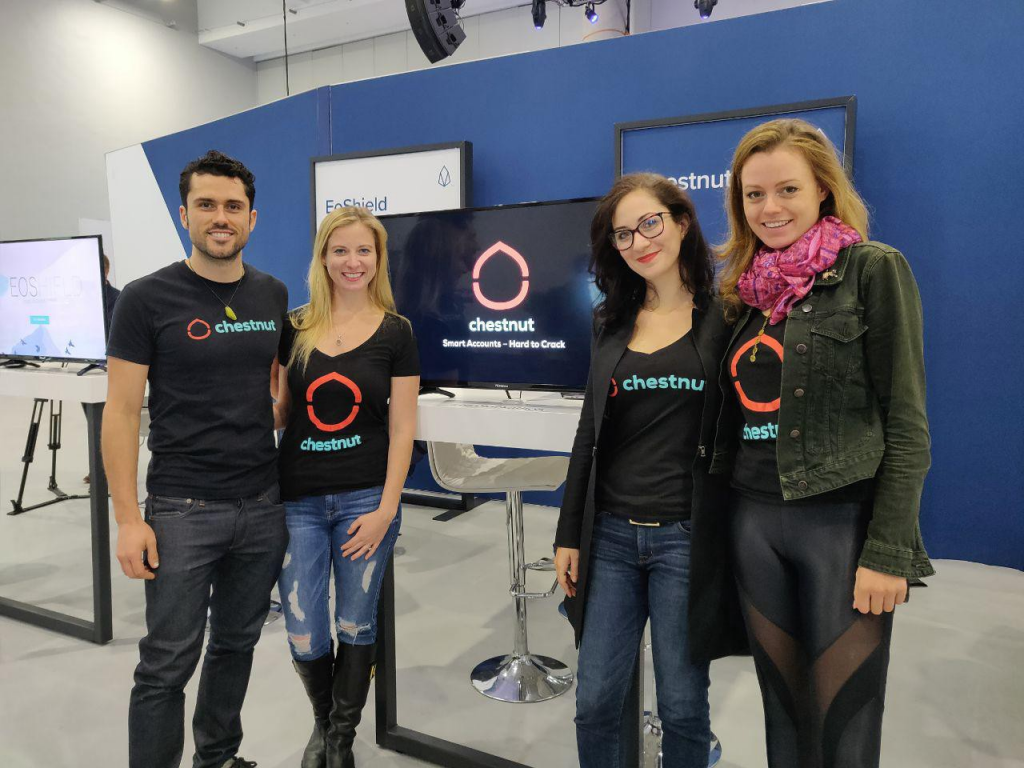
Daniel Liebeskind, Co-Founder of Chestnut
Second Place takers and winners of Best User Experience at the London edition of the EOS Global Hackathon, Chestnut are working to improve the user experience of blockchain applications by providing an easy to use account with useful safety features.
Following their recently published technical white paper, the team are planning to launch Chestnut in 2020. Moreover, they’ve already built out their smart contract system which has been independently audited.
Notably, it’s not just the team that has been making progress. After their London success, they started Decrypted, a consulting business that already boasts a portfolio of EOSIO based clients, including Telos.
“In order for there to be mass adoption of blockchain applications, there needs to be an infrastructure in place that makes new user onboarding easy and safe,” says Daniel Liebeskind, Co-Founder. “We believe, more so now than ever, that Chestnut is a critical part of that infrastructure.”
More information on Chestnut’s smart accounts are available on their #BuiltOnEOSIO feature.
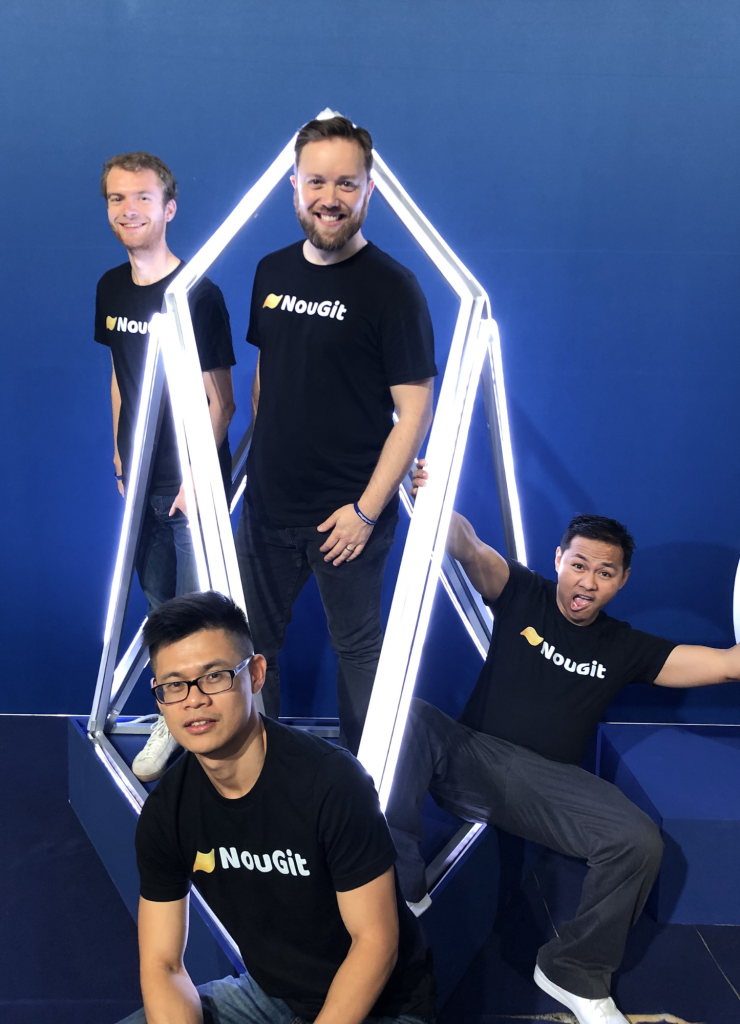
Rob Behnke, Co-Founder of NouGit
Since taking home first prize of US$100,000 at the San Francisco Hackathon, the NouGit team have continued building their decentralized and incentivized git repository platform. One that provides core features for users to register, add and shape project repos, fund job postings and pay coders who satisfy the job requirements.
NouGit’s ultimate goal? To build a system that can enable many partners to build applications on top of the core system it provides. It’s a goal that has seen the current team of past hackathon participants, Rob Behnke (CEO) and Fred Madrid (CPO), joined by newcomers Mo Ayyash (Google alumni) and full stack developer Thomas Powers (EOS Bet).
With multiple goals in 2020 including a launch and seed raise, NouGit are currently focused on solving some of the most critical issues in open source today. “We’re empowering developers to lead abandoned repos, enable crowdfunding features, issues and projects,” says Behnke.
“We want to be the go-to platform for decentralized community management and governance.”
Seeking more on NouGit? Read their #BuiltonEOSIO feature or San Francisco recap.
Important Note: All material is provided subject to this important notice and you must familiarize yourself with its terms. The notice contains important information, limitations and restrictions relating to our software, publications, trademarks, third-party resources and forward-looking statements. By accessing any of our material, you accept and agree to the terms of the notice.